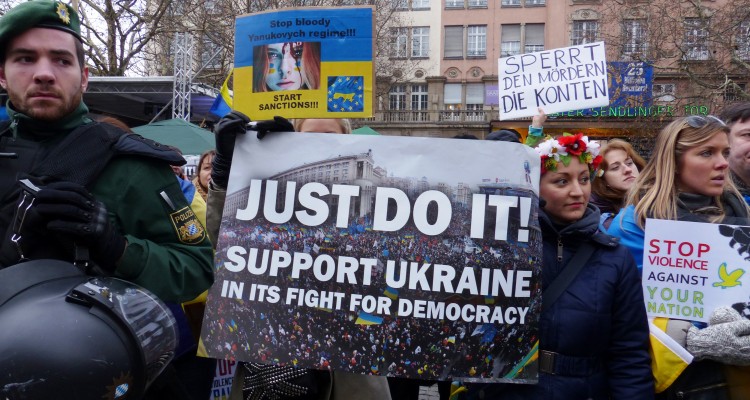In a society where news from halfway around the world can be brought to a person’s immediate attention and fingertips by starting a “trend,” social media serves to perpetuate and inform all people of current events. The events that garner international attention are oftentimes followed by a phrase or “hashtag” that is concise enough to express its message through the limited 140 characters on Twitter, in one vivid Instagram image or a brief post on Facebook. For that reason alone, certain events that are too intricate to be condensed into an eye-catching message or image are often upstaged by the events that have generated a trend. A prime example of this disparity is the case of the Jan. 7, 2015 shooting in the Charlie Hebdo headquarters in Paris and the ongoing violence occurring once more between Russia and Ukraine.
Despite both events having a significant impact in our world, social media has been able to help facilitate the astounding, widespread support that Charlie Hebdo has received following the shooting. The now iconic phrase “Je suis Charlie,” or “I am Charlie,” that originated on platforms such as Twitter and Facebook has not only become viral, but has been sported by a multitude of high-profile celebrities who wore the phrase on their outfits at the Golden Globe Awards earlier in the month. The “Je suis Charlie” hashtag has become one of the most popular in the history of Twitter, with a rate of 6,500 times per minute at the height of trending, and being featured in an astounding 3.4 million tweets in one 24-hour period. With news outlets such as the BBC streaming minute-by-minute live reporting, the massacre of twelve people, including Charlie Hebdo’s editor and four celebrated cartoonists, was instantly brought to worldwide attention.
Unlike Charlie Hebdo, the ongoing conflict between Russia and Ukraine has not received nearly the same international support or recognition despite the increasing number of Ukrainian civilian casualties. Coverage of the horrific events has taken place predominantly in the mainstream media, which targets an older audience, who are less likely to get their news or express their views on social media. Additionally, the long history of ethnic and geographic animosity over Ukraine is not easily expressed in a tweet or post. The centuries-old conflict seemingly lacks the ability to stir up the emotions seen in the three-day rampage that terrorized France, and in turn, the world, despite a profoundly greater loss of lives in the Russia-Ukraine conflict. On Jan. 22, 2015 alone, an upsurge in fighting claimed the lives of nearly 50 people, including a trolleybus shelling in the rebel stronghold of Donetsk, which killed 13 passengers, mostly elderly.
However, despite the lack of social media recognition of the violence of the Russia-Ukraine conflict, there may be other reasons that have resulted in the overwhelming acknowledgment and support of Charlie Hebdo.
Unlike the political strife that has occurred for thousands of years and what many now see as becoming seemingly routine clashes between Russia and Ukraine, the sudden and horrific nature of the Charlie Hebdo shooting took on an aura of a 21st century attack, reigniting the fear evoked by modern-day terrorists; the Russia-Ukraine conflict may be viewed perceived more as a 19th century battle.
Additionally, another key reason that I believe the Charlie Hebdo attack has gained more notoriety than the violence in Ukraine is due to the widespread and continual prejudice directed at people of the same religious affiliation as the gunmen. Religious intolerance has been a continual struggle for Muslims over the years. Given the propensity of ignorant people who ostracize and stereotype Muslims, it is unsurprising that many of the same intolerant people fixated solely on the fact that the gunmen were of Islamic faith, rather than the larger issues at hand such as the right of freedom of speech.
Although acts of terrorism hit very close to home for the United States – and it is not shocking that many U.S. citizens have shown tremendous support for the attack on Charlie Hebdo – it is important to also remember that both current events are significant. The fact that social media can better spread awareness of one event, namely the Charlie Hebdo attack, does not diminish the value or importance of the strife that continues to transpire and escalate between Russia and Ukraine.


Leave a Reply